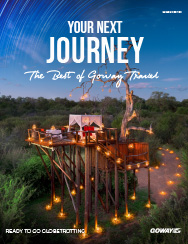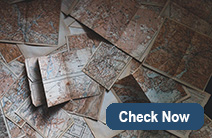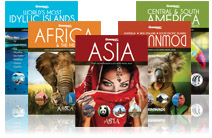Mozambique History
The pre-colonial people that inhabited Mozambique were Bushmen hunters and gatherers who lived off of the land. Between 200-300 AD, Bantu warriors from the Great Lakes area came to Mozambique, forcing out the local populations. By the 10th century, the country garnered interest from both Arab and Indian traders curious about what Mozambique had to offer. By the 11th century, the Shona empire from present-day Zimbabwe covered parts of Mozambique with a special relationship between the two nations existing to this day.
During the 15th century, Portuguese traders arrived along the coast looking for gold. They began to move inwards, expanding settlements with the help of military aid and the arrival of missionaries and more traders. As time passed, the Portuguese did not simply want to be involved in the trading of gold, they wanted complete control over the entire trade. This period in Mozambique history is known as the “Gold Phase”. Following the “Gold Phase”, the Portuguese became increasingly interested in the ivory trade, and more importantly the slave trade.
By the 18th century, Mozambique had become the centre of the slave trade. The Lómué Macua people were the most affected as many were sent to the Mascarene Islands, Madagascar, Zanzibar, the Persian Gulf, Brazil and Cuba to work as slaves. Despite the abolition of the slave trade in 1842, the emergence of military states allowed it to continue in Mozambique.
Towards the end of the 19th century, the Berlin Conference was held, effectively resulting in the “Scramble for Africa” with many countries becoming involved in the parceling out of African countries. Portugal remained in control of Mozambique, however, due to financial and military limitations, they were forced to lease out various parts of the country to royal and leasing companies.
By 1951, Mozambique had become an overseas province of Portugal. After much secular oppression, coupled with a fascist regime in Portugal that was asserting itself in Mozambique, the population began to fight for independence.
The Mozambique Liberation Front (FRELIMO) was established in 1962 as the result of three groups that were in exile. They were led by Eduardo Mondlane Chivambo and began their fight for independence in 1964. A guerilla war ensued that lasted until 1974. During this time, a military coup was happening in Portugal and the end result was a new left-wing government that did not want to maintain an empire or territories. As such, the negotiations for independence began and it was granted in 1975 with FRELIMO taking power in a one-party state.
A civil war began between FRELIMO and the Mozambique National Resistance (RENAMO) who were established by the white-run Rhodesian government that was backed by apartheid in South Africa and by the United States. Although a peace agreement was struck in 1992, Mozambique was left in pieces with many victims as well as the destruction of the economy and infrastructure.
In 1994, the first national democratic elections were held and were won by FRELIMO, led by Joaquim Chissano. Chissano remained in power for the next 11 years and under him, the government made steady progress. Upon his retirement, Chissano was awarded the inaugural Prize for Achievement in African Leadership for leaders who proved good governance.
Mozambique appointed their first female Prime Minister, Luisa Diogo in 2004. Since 2004, despite some scandals, Mozambique has enjoyed much peace and stability. The country has opened its doors to tourism and in 2005, the tourist industry grew by 37%, making it the fastest tourist industry growth rate in the world. Although Mozambique is not visited as much as other African countries, its stunning beaches, wildlife and ecotourism make it a destination just waiting to be discovered.
Mozambique Travel Information
At Goway we believe that a well-informed traveller is a safer traveller. With this in mind, we have compiled an easy to navigate travel information section dedicated to Mozambique.
Learn about the history and culture of Mozambique, the must-try food and drink, and what to pack in your suitcase. Read about Mozambique's nature and wildlife, weather and geography, along with 'Country Quickfacts' compiled by our travel experts. Our globetrotting tips, as well as our visa and health information will help ensure you're properly prepared for a safe and enjoyable trip. The only way you could possibly learn more is by embarking on your journey and discovering Mozambique for yourself. Start exploring… book one of our Mozambique vacations today!
Extend your Trip
After your Mozambique tour, why not consider one of Goway's Europe tours.
Book your Mozambique vacation with Goway!
 AfricaExperts is the exclusive division of Goway that specializes in planning and organizing Mozambique vacations and experiences. Choose from a romantic island stay, a stay of distinction, a rail journey, a independent travel module and more. We want to be your first choice when next you go globetrotting to Mozambique.
AfricaExperts is the exclusive division of Goway that specializes in planning and organizing Mozambique vacations and experiences. Choose from a romantic island stay, a stay of distinction, a rail journey, a independent travel module and more. We want to be your first choice when next you go globetrotting to Mozambique.
Get a Trip Quote Order a Brochure




















